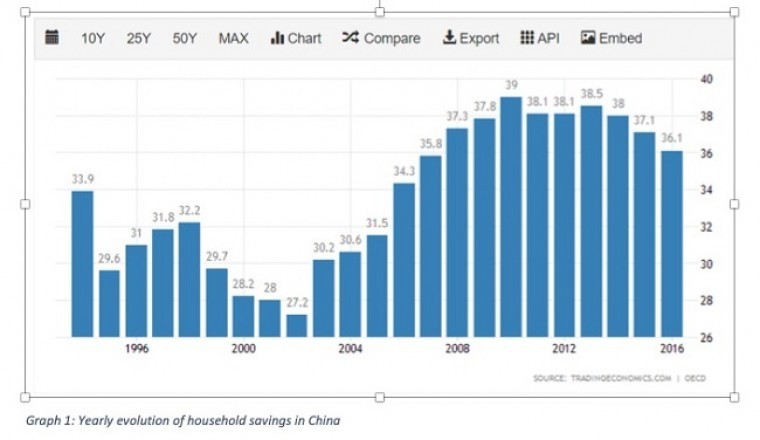
Dubai, United Arab Emirates, 18 December 2019-(AETOSWire) - Due both to economic slowdown and structural change, Chinese consumers show signs of changing behavior patterns. According to the Alpho analysis, it is probable that the number of Chinese tourists abroad will significantly decline together with the reduction of Chinese savings. That will cause a cut of capital flow to other countries including South Asia, Middle East, Europe and the USA.
Based on International Monetary Fund (IMF) estimates, the Chinese economy is expected to reach the trade deficit in the next two years. In spite of the fact that since 2001 China has been proud of its trade surplus, it started to gradually decline after the financial crisis in 2008. Currently it’s moving close to zero.
The main reason regarding this evolution is probably a sharp increase in international tourism of Chinese residents thanks to the increasing wealth of the middle class. According to the available sources, the volume of Chinese people travelling abroad increased from 42 to 162 million between 2008 and 2018, which represents a growth of around 252%. The consequence of this trend generated the deficit of 250 billion USD last year. This unfavorable development for the Chinese balance is signaling there can be a change, one of which consequences is the above-mentioned decline in outcoming tourism.
Based on data from OECD, savings of Chinese households increased sharply from 28% in 2000 to 39% in 2010 and still stay relatively high. But Chinese population is aging and this leads to the trend that people start spending more than they earn and consequently push the savings levels downwards. The last figure of savings was 36.1%, in 2016.
[GRAPH 1]
In its report of global economy outlook, IMF subsequently decreased Chinese economy growth estimation for 2020 from original 6.6% in previous year to 5.8%. There is a wind of change in the way Chinese consumers have been behaving so far.



















Facebook Conversations
Disqus Conversations